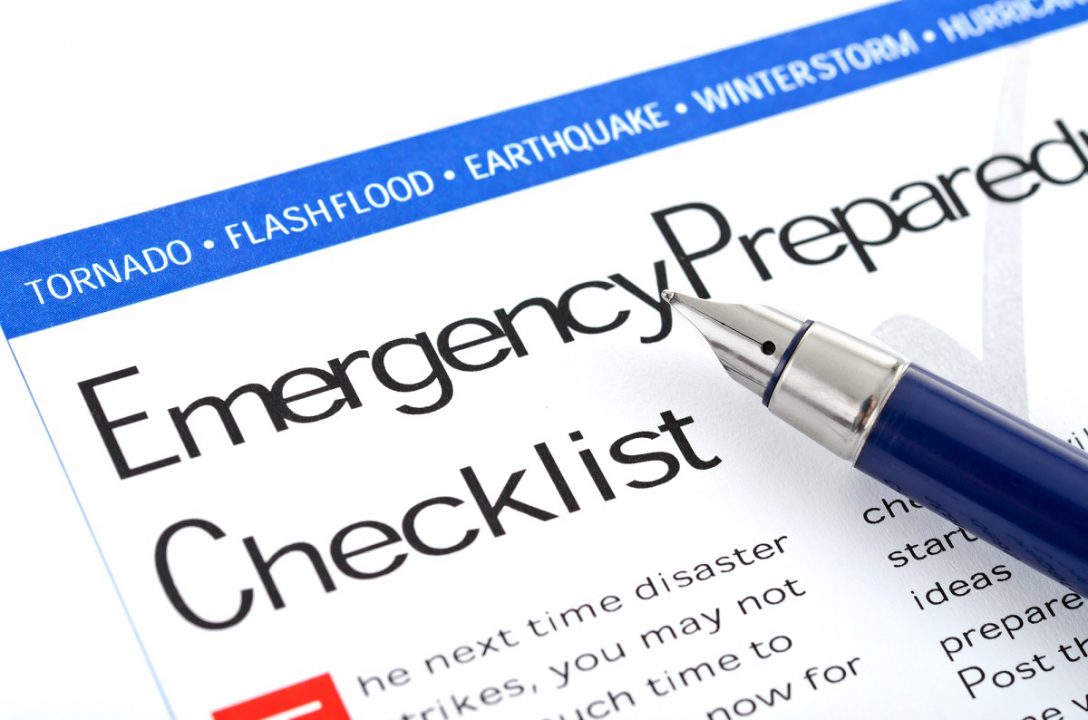“Prepared, Not Scared.”
That is the theme of this year’s National Preparedness Month, held annually every September since 2004. National Preparedness Month provides an opportunity to remind everyone to prepare themselves and their families now, and throughout the year.
National Preparedness Month is sponsored by the Federal Emergency Management Agency within the Department of Homeland Security, and it’s part of a governmental effort to strengthen the United States’ preparedness capabilities, whether a terrorist attack strikes, or a natural disaster hits.
Better Business Bureau is proud to partner with FEMA and the Department of Homeland Security (Ready.gov) to offer tips on how to fully prepare for a disaster.
Make and Practice Your Plan
Disasters don’t plan ahead, but you can. Start by making an emergency plan with everyone in the home.
Put together a plan by discussing four different questions with your family, friends or household to begin your emergency plan. Discuss how you will receive emergency alerts and warnings, what your shelter plan is, your evacuation route, and the household communication plan.
It’s best to practice your escape plan with your family, including animals, at least twice a year so you are fully prepared when disaster strikes.
Fill out an emergency plan, and share with everyone in your family, or household.
Learn Life Saving Skills
Learning basic home maintenance skills can protect your home and your family.
Learn how to turn off utilities like natural gas and electricity, and how to test and replace smoke alarms. It’s recommended to test smoke alarms every month, and to replace them every 10 years.
You should also know the ways to keep your home safe from cooking, heating and electrical fires by clicking here.
Check Your Insurance Coverage
Did you know according to FEMA, more than half of all homeowners in the United States do not carry adequate homeowners insurance to replace their home and its contents should a catastrophic loss occur?
Insurance is your first line of defense, which is why you should check your insurance coverage, and review your policy.
For more information on insurance, visit ready.gov/september.
Save for an Emergency
Did you know according to the Federal Reserve over 40 percent of Americans don’t have $400 in savings? It’s important to be financially prepared for any type of disaster. Disasters can be very stressful, but having access to personal, financial, medical and other records is crucial to a quick recovery.
Consider saving money and storing it in an emergency savings account, as well as leaving a small amount of cash at home in a safe place. If a disaster strikes, ATM’s and credit card machines may stop working, leaving cash as the only option.
You should also gather all financial and critical personal, household and medical information and store it in a safe, yet easily accessible place.
It’s important to also obtain property, health and life insurance, and review your existing policies for the amount and extent of coverage to ensure that what you have in place is enough for you and your family.
No matter how much you prepare, you might have some damage to deal with after a natural disaster. “Storm chasers” are contractors who seek to take advantage of disasters and get consumers to make quick and potentially uninformed decisions. See BBB’s tips on protecting yourself from storm chasers.
BBB of Central California & Inland Empire and BBB of Cincinnati contributed to this article.

